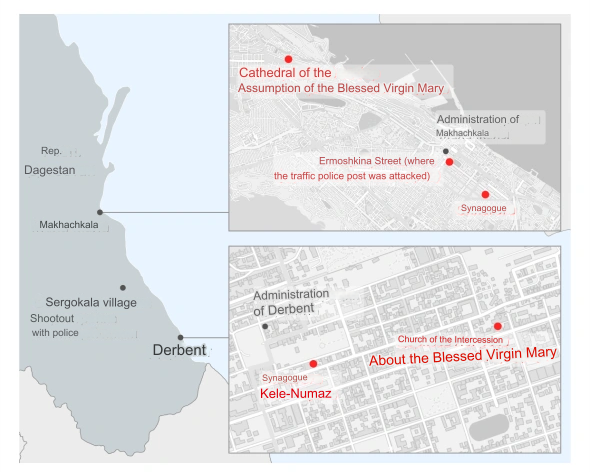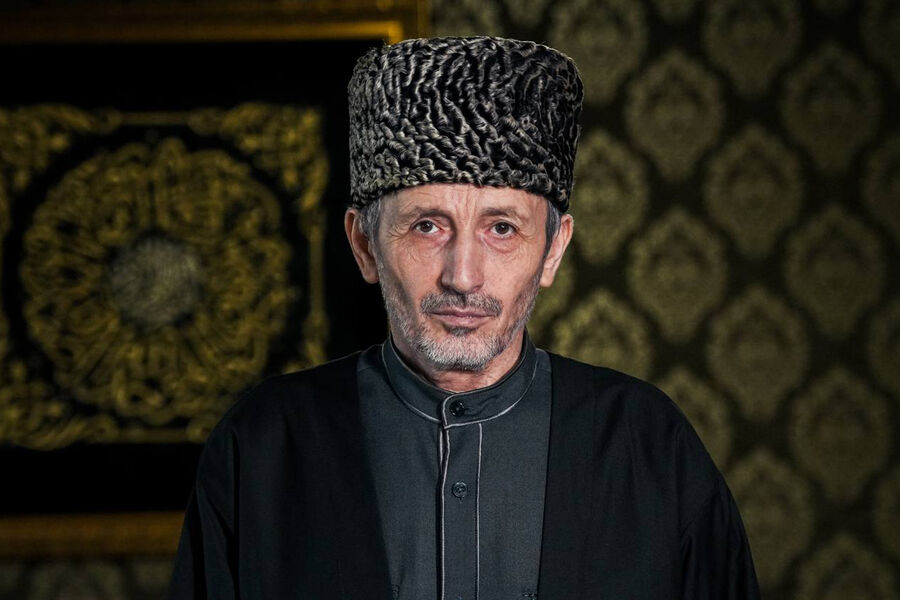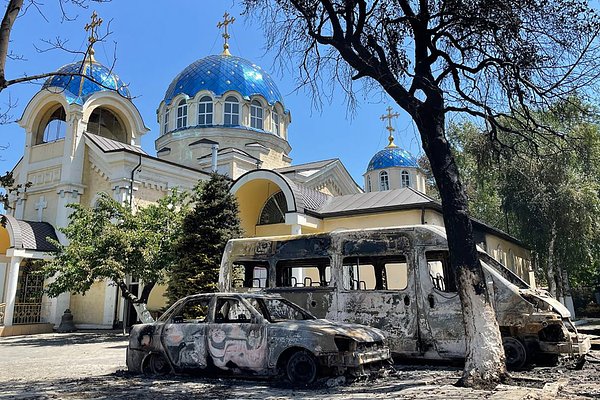On June 23, 2024, a series of coordinated terrorist attacks in Dagestan, Russian Caucasus, targeted two Orthodox churches and two synagogues, resulting in significant casualties. In the wake of the attacks, Dagestan declared three days of mourning from June 24 to June 26. The Russian Investigative Committee has initiated a criminal investigation into the acts, which are being treated as terrorism.
Initial Attacks and Response
The violence unfolded in Makhachkala, the capital of the Republic of Dagestan, and the coastal city of Derbent.

The Regional Ministry of the Interior reported the onset of the militant attack at approximately 7:00 p.m. Moscow time (MSK, around 12:00 EST). Shortly thereafter, the Russian Jewish Congress noted that the attack on the synagogue in Derbent occurred around 5:50 p.m., just 40 minutes before evening prayers. A similar assault targeted a synagogue in Makhachkala.
Following these initial incidents, the regional Interior Ministry activated the “Interception” security plan. Media outlet Mash reported by 7:12 p.m. that security forces had sealed off entry and exit points to both Makhachkala and Derbent, as images of the burning churches and synagogues began circulating online.
By 7:50 p.m., the National Anti-Terrorism Committee (NAC) confirmed the neutralization of two militants in Makhachkala, coinciding with online videos showing the arrest of two additional suspects on the city’s beach.
Despite these arrests, gunfire continued in both Makhachkala and Derbent. At 8:20 p.m., an anti-terrorism operation regime (CTO) was declared in Dagestan, and within 40 minutes, videos of armored vehicles being deployed in the cities were shared on Telegram channels.
By 9:20 p.m., a TASS correspondent reported that the city center was without electricity, and clashes were ongoing. At 10:06 p.m., RT released a video showing the arrest of another terrorist in Derbent. Around 10:30 p.m., the Interior Ministry announced that Mavludin Khidirnabiev, the head of the City of Lights police department in Dagestan, had been critically injured in the battle at Derbent and later succumbed to his injuries.
In Makhachkala, fighting persisted near a church around 9:00 p.m.. Concurrently, police refuted local Telegram channel claims of potential hostages inside the church, clarifying that 19 individuals had locked themselves inside for safety. By 10:13 p.m., a video of security forces escorting these individuals out of the building was published by SHOT.
Around 10:00 p.m., shooting with militants was reported in the Sergokala village region near Derbent. Security forces were dispatched to the village “to carry out a combat mission,” according to the department.
By 11:00 p.m., the NAC announced the completion of the active phase of the anti-terrorist operation in Derbent and the elimination of two more militants. The CTO regime was lifted the following morning.
The anti-terrorist operation concluded on June 24, as confirmed by local authorities.
Casualties and Recognition
According to Dagestan Governor Sergey Melikov, the death toll has reached 22, including 17 police officers and five civilians, among them an Orthodox priest, Father Nikolai Kotelnikov.
During the operation, five assailants were neutralized. Investigations revealed that among the attackers were relatives of Magomed Omarov, the head of Dagestan’s Sergokalinsky District. His son, 31-year-old Osman, and his nephew, Ali Zakarigaev, a former leader of a local branch of the “A Just Russia – For Truth” party, were both killed during the security operation.
Father Kotelnikov, rector of the “Church in Honor of the Intercession of the Holy Virgin” in Derbent, was posthumously awarded the Order of Courage by Russian President Vladimir Putin for his bravery during the attacks. Other police officers killed in the incident will also receive the same honor.
Aftermath and Reactions
Omarov was arrested after it was confirmed that two of his sons and two nephews of his wife were involved in the attacks. His son Ali and nephew Osman were both killed during the attack. The fates of his other two relatives involved are not clear. Omarov himself was dismissed from his position as district head and expelled from the “United Russia” party. Additionally, a criminal case for complicity with terrorism could be opened against him, as indicated by two sources to RIA Novosti?.
Sergey Mironov, leader of the Russian party “Just Russia — For Truth,” stated that the terrorist attacks in Dagestan were a consequence of the inadequate response to the October riots at Makhachkala airport. He argued that these earlier events, which involved over a thousand people storming the international terminal and runway targeting arrivals from Israel, resulted in casualties, including police officers, but failed to lead to severe legal repercussions. In light of this, Mironov called for the death penalty for terrorists, imprisonment for their accomplices, and a lifelong prohibition from public service and employment in government bodies for their family and friends.
Melikov has hinted at external influences being behind the attacks, suggesting that the attackers were part of sleeper cells, some of whom were trained abroad. Melikov also pointed fingers at the West, and although he did not substantiate his accusations, he suggested that:
“[Western influences] could well affect the preparation and ideological state of individuals capable of such crimes.”
Significant figures from various religious communities have also voiced their reactions. Patriarch Kirill of Moscow and All Russia expressed his prayers for the repose of Father Nikolai Kotelnikov, who perished in the attacks, and for all other victims, as conveyed by spokesperson Legoida. Additionally, Rabbi Alexander Boroda, President of the Federation of Jewish Communities of Russia (FJC), urged communities across the country to remain calm and not to succumb to provocations linked to the terrorist incidents.

The Mufti of Dagestan, Ahmad-Afandi Abdulaev, condemned the militants involved in the violence and has announced plans to issue a fatwa banning the niqab.
Possible Relations with the Islamic State
Three months ago, Russia was struck by the Islamic State branch, Islamic State Khorasan (ISIS-K) primarily active in South-Central Asia, which orchestrated a devastating attack at Crocus City Hall in Moscow last March, resulting in over 145 fatalities. ISIS-K also praised the recent attacks in Dagestan, stating:
“[The perpetrators are] brothers in the Caucasus who demonstrated their enduring strength.”
Nonetheless, no group has officially claimed responsibility for the terror attacks in Dagestan.
Official figures suggest that around 4,500 Russians, primarily from the Caucasus, have fought alongside ISIS in Iraq and Syria.

